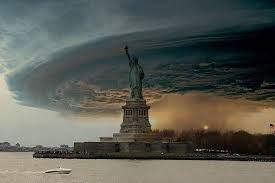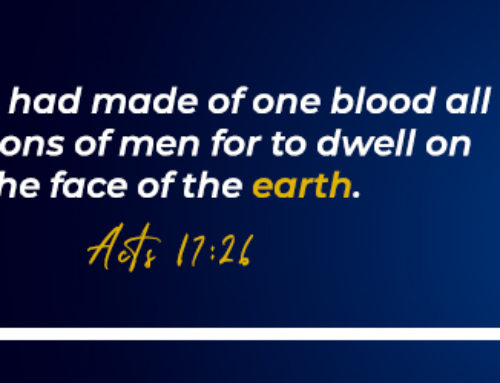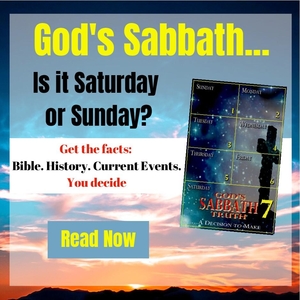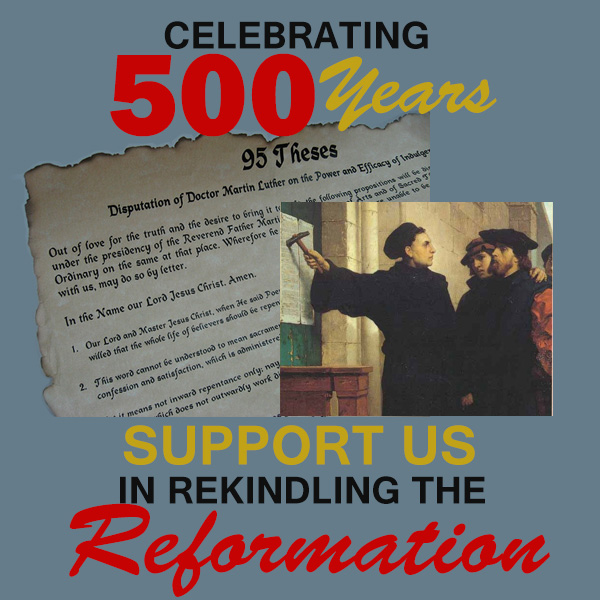In recent times, there has been increasing attacks on the word of God. More and more, men are making sin to be righteousness and calling righteousness sin. Religious Liberty is at a crossroad as it becomes ever so difficult to honor God as one’s conscience dictates. To stand for truth and righteousness is to be maligned by the proponents of popular culture. This is all leading to a tectonic crisis of apocalyptic proportions. It is verily a storm, one that is unlike any other, that is brewing on the horizon of salvation history.
One famous Bible commentator puts it this way, “Those who honor the law of God have been accused of bringing judgments upon the world, and they will be regarded as the cause of the fearful convulsions of nature and the strife and bloodshed among men that are filling the earth with woe. The power attending the last warning has enraged the wicked; their anger is kindled against all who have received the message, and Satan will excite to still greater intensity the spirit of hatred and persecution.
When God’s presence was finally withdrawn from the Jewish nation, priests and people knew it not. Though under the control of Satan, and swayed by the most horrible and malignant passions, they still regarded themselves as the chosen of God. The ministration in the temple continued; sacrifices were offered upon its polluted altars, and daily the divine blessing was invoked upon a people guilty of the blood of God’s dear Son and seeking to slay His ministers and apostles. So when the irrevocable decision of the sanctuary has been pronounced and the destiny of the world has been forever fixed, the inhabitants of the earth will know it not. The forms of religion will be continued by a people from whom the Spirit of God has been finally withdrawn; and the satanic zeal with which the prince of evil will inspire them for the accomplishment of his malignant designs, will bear the semblance of zeal for God.
As the Sabbath has become the special point of controversy throughout Christendom, and religious and secular authorities have combined to enforce the observance of the Sunday, the persistent refusal of a small minority to yield to the popular demand will make them objects of universal execration. It will be urged that the few who stand in opposition to an institution of the church and a law of the state ought not to be tolerated; that it is better for them to suffer than for whole nations to be thrown into confusion and lawlessness. The same argument many centuries ago was brought against Christ by the “rulers of the people.” “It is expedient for us,” said the wily Caiaphas, “that one man should die for the people, and that the whole nation perish not” (John 11:50). This argument will appear conclusive; and a decree will finally be issued against those who hallow the Sabbath of the fourth commandment, denouncing them as deserving of the severest punishment and giving the people liberty, after a certain time, to put them to death. Romanism in the Old World and apostate Protestantism in the New will pursue a similar course toward those who honor all the divine precepts.
The people of God will then be plunged into those scenes of affliction and distress described by the prophet as the time of Jacob’s trouble. “Thus saith the Lord: We have heard a voice of trembling, of fear, and not of peace…. All faces are turned into paleness. Alas! for that day is great, so that none is like it: it is even the time of Jacob’s trouble; but he shall be saved out of it” (Jeremiah 30:5-7).
Jacob’s night of anguish, when he wrestled in prayer for deliverance from the hand of Esau (Genesis 32:24-30), represents the experience of God’s people in the time of trouble. Because of the deception practiced to secure his father’s blessing, intended for Esau, Jacob had fled for his life, alarmed by his brother’s deadly threats. After remaining for many years an exile, he had set out, at God’s command, to return with his wives and children, his flocks and herds, to his native country. On reaching the borders of the land, he was filled with terror by the tidings of Esau’s approach at the head of a band of warriors, doubtless bent upon revenge. Jacob’s company, unarmed and defenseless, seemed about to fall helpless victims of violence and slaughter. And to the burden of anxiety and fear was added the crushing weight of self-reproach, for it was his own sin that had brought this danger. His only hope was in the mercy of God; his only defense must be prayer. Yet he leaves nothing undone on his own part to atone for the wrong to his brother and to avert the threatened danger. So should the followers of Christ, as they approach the time of trouble, make every exertion to place themselves in a proper light before the people, to disarm prejudice, and to avert the danger which threatens liberty of conscience.( Ellen G. White, Great controversy, pg 414-416)
Those professed Christians who come up to that last fearful conflict unprepared will, in their despair, confess their sins in words of burning anguish, while the wicked exult over their distress. These confessions are of the same character as was that of Esau or of Judas. Those who make them, lament the result of transgression, but not its guilt. They feel no true contrition, no abhorrence of evil. They acknowledge their sin, through fear of punishment; but, like Pharaoh of old, they would return to their defiance of Heaven should the judgments be removed.
Jacob’s history is also an assurance that God will not cast off those who have been deceived and tempted and betrayed into sin, but who have returned unto Him with true repentance. While Satan seeks to destroy this class, God will send His angels to comfort and protect them in the time of peril. The assaults of Satan are fierce and determined, his delusions are terrible; but the Lord’s eye is upon His people, and His ear listens to their cries. Their affliction is great, the flames of the furnace seem about to consume them; but the Refiner will bring them forth as gold tried in the fire. God’s love for His children during the period of their severest trial is as strong and tender as in the days of their sunniest prosperity; but it is needful for them to be placed in the furnace of fire; their earthliness must be consumed, that the image of Christ may be perfectly reflected.
The season of distress and anguish before us will require a faith that can endure weariness, delay, and hunger—a faith that will not faint though severely tried. The period of probation is granted to all to prepare for that time. Jacob prevailed because he was persevering and determined. His victory is an evidence of the power of importunate prayer. All who will lay hold of God’s promises, as he did, and be as earnest and persevering as he was, will succeed as he succeeded. Those who are unwilling to deny self, to agonize before God, to pray long and earnestly for His blessing, will not obtain it. Wrestling with God—how few know what it is! How few have ever had their souls drawn out after God with intensity of desire until every power is on the stretch. When waves of despair which no language can express sweep over the suppliant, how few cling with unyielding faith to the promises of God?
Those who exercise but little faith now, are in the greatest danger of falling under the power of satanic delusions and the decree to compel the conscience. And even if they endure the test they will be plunged into deeper distress and anguish in the time of trouble, because they have never made it a habit to trust in God. The lessons of faith which they have neglected they will be forced to learn under a terrible pressure of discouragement. (Ellen G. White, Great Controversy, pg 620-621). Read more.
Ellen G. White was cited in Smithsonian Magazine, February 2015, as one of the ten most influential American religious figures of all time. She lived from 1827-1915. With only a third grade education, she has written more than 40 books on Christian Living, Family and Child Rearing, Health, Education, and Bible Prophecy.










Leave A Comment